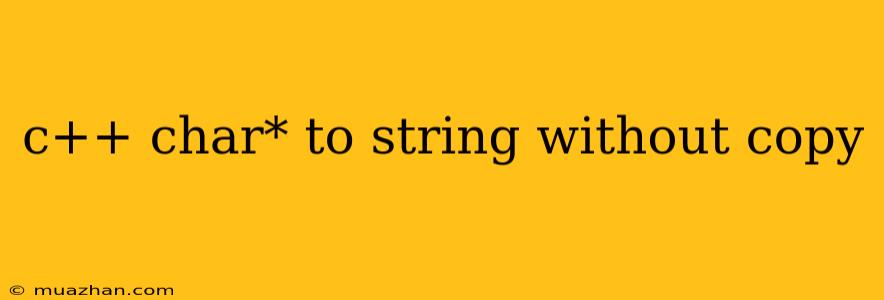C++: Convert char* to string without copying
In C++, you often need to work with strings, but sometimes you're given a char* pointer and you need to convert it to a std::string object. While there are several ways to do this, one common method is to avoid unnecessary copying. Here's how:
Understanding the Problem
Copying a char* to a std::string involves allocating new memory for the string, copying the characters from the char* pointer, and potentially freeing the original memory. This can be inefficient, especially for large strings.
Solution: std::string Constructor
The std::string class provides a constructor that accepts a char* pointer as an argument. This constructor takes the pointer and uses it to create a string object without copying the underlying character data. This is because it simply points to the same memory location as the original char*.
#include
#include
int main() {
char* charArray = "Hello, World!";
std::string str(charArray);
std::cout << str << std::endl;
return 0;
}
In this example, the std::string constructor (std::string(charArray)) directly uses the char* pointer to create the str object. This avoids the copying process, making it efficient for large strings.
Important Considerations
Ownership and Memory Management:
- Be careful with the ownership of the
char*pointer. If you do not own the memory pointed to by thechar*, you should not modify the string data. - If you are using a
char*that points to a dynamically allocated memory (e.g.,char* charArray = new char[10];), remember to deallocate it usingdelete[] charArrayafter you no longer need it.
Alternatives:
- For small strings, the performance difference might not be significant. However, for large strings, using a constructor to avoid copying is recommended for efficiency.
- If you need to manipulate the string data after creating the
std::stringobject, you can still use this method and then use string methods likeappend,insert, etc.
By understanding the constructor's behavior and the considerations around ownership and memory management, you can use std::string constructors effectively to convert char* pointers to strings without unnecessary copying, making your C++ code more efficient.
